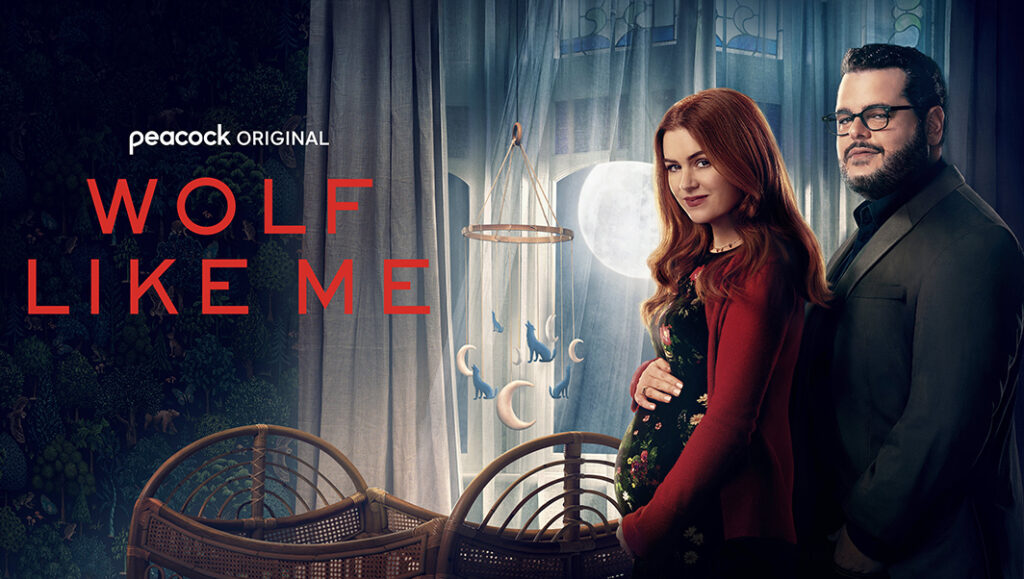Exclusive Interview: Creator Abe Forsythe Brings Us Behind the Scenes of Wolf Like Me Season 2

Abe Forsythe is the creative mastermind behind Wolf Like Me, which recently returned for its second season.
In Season 2 of Wolf Like Me, Mary (Isla Fisher) and Gary (Josh Gad) leap into the next phase of their relationship, facing their biggest challenge yet: pregnancy. As much
as the two try to have a “normal” pregnancy, it seems impossible with so many questions looming over them. Will their child be a human or a wolf? Just how long can they keep things secret from the rest of their family? Will what happened in the outback come back to haunt them? And, with Mary’s former professor, Anton (Edgar Ramirez), suddenly in the picture, can their relationship withstand newly unearthed secrets from Mary’s past?
Pop Culturalist was lucky enough to speak with Abe about Season 2 of Wolf Like Me, how he’s expanded the universe and brought new threats, playing with the tones of the series, and more.
PC: One of the benefits of television as a medium is the opportunity to tell a story for an extended period and build on various character arcs. Frequently, the actors’ portrayal and interpretation of these characters influence the narrative. What were you most excited to delve further into as you approached this new season? How did you play to the strengths of your cast?
Abe: I was most excited about providing them with opportunities and pushing them further into what I already knew they were capable of. Season 2 gave me the license to really embrace everything that was great about our lead cast and deliberately put them into situations of conflict that would bring out the best in them both dramatically and comically. Josh and Isla are great comedically because they understand the dramatic foundations of performance.
PC: Mary and Gary’s decision to be together will open their world to new threats. How has this relationship impacted the overall tone heading into Season 2?
Abe: It brought a lot more conflict and a lot more comedy into the show, which was an interesting and enjoyable discovery for me as I wrote this season. The threats they face are so absurd, but by playing them truthfully, the comedy naturally reveals itself.
PC: We see a real evolution in the relationship between Mary and Emma. How early in the writing process did you realize you wanted to have this dynamic be a focal point for Season 2, and what do you hope audiences take away from it?
Abe: It was really important for me to show how meaningful and impactful a relationship between a step-parent and a child can be. Personally, I’ve experienced my own version of this with my son and girlfriend, who has been in his life for the last couple of years. She was the first person I’d dated who met him, and his life has been so much better for her being a part of it. Mary is that same person for Emma. The big realization for Mary in this season is understanding that she already is a mother because of their relationship.
PC: You tackle so many universal themes within this series. Why do you think this fusion of genres lends itself to this type of storytelling?
Abe: For me, it’s much more interesting to explore relatable themes through genre. The type of genre that I respond to is one that allows me to live vicariously through characters in situations that I would never find myself in ordinarily. I’ve had a much more cathartic experience watching movies and TV shows where I can relate to something in an unexpected way.
PC: Music also plays such a pivotal role in driving the narrative forward. What was the collaboration process like working with your music supervisor and being really intentional about leveraging that in your storytelling?
Abe: Andrew Kotatko, my music supervisor, is one of the most talented people I’ve ever worked with. Not only does he have an intuitive understanding of the story’s musical needs, but he can also champion my show to the many people responsible for clearing the music. This was not an easy season for him, dealing with the likes of George Harrison, Paul McCartney, Nina Simone, Nirvana, Dolly Parton, and INXS (just to name a few). But somehow, he did it. We also built a huge level of trust with Queens Of The Stone Age, without whose collaboration I wouldn’t have been able to make either season. Their sound has become very important for the world of this show, and we go even deeper with them in this new season.
PC: You’re also an actor. How have your experiences in front of the camera impacted the way you approach your work as a writer/director and collaborate with casts like Wolf Like Me?
Abe: The greatest gift I received as an actor was working with several directors from whom I could take what I learned and improve upon it. In my acting career, I’ve worked with over 30 directors and learned about the importance of communicating clearly, making actors feel safe, and ensuring everyone involved is aligned with the story we’re telling. A director really has to believe in the material and believe that the story is worth telling.
PC: Unlike the first season, there’s a major cliffhanger at the conclusion of Season 2. What led to that decision?
Abe: To be honest, it was just the story telling me that it’s what it needed. I didn’t set out to end the show like this; it just happened. I’m a big believer in letting the story tell you where it needs to go. Hopefully, I’m allowed to keep letting it tell me beyond this point.
To keep up with Abe, follow him on Instagram. Season 2 of Wolf Like Me is now on Peacock.


Discussion about this post